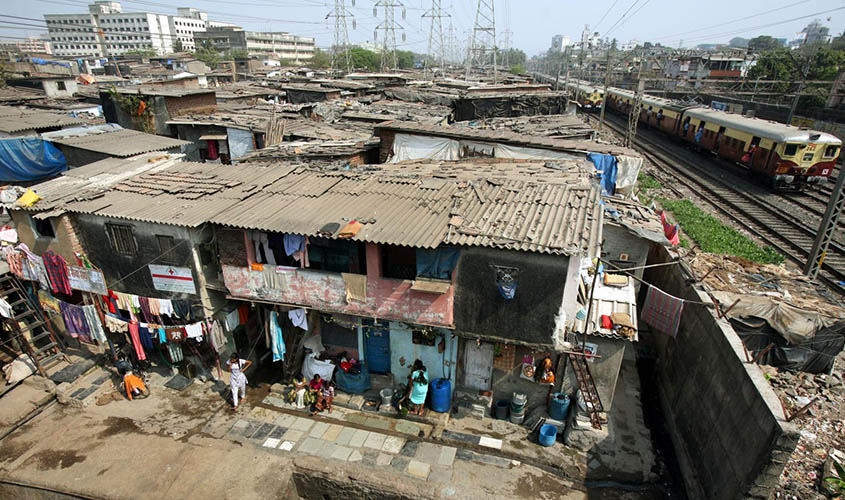BJP promises better homes for people in slums; AAP banking on work the party has done in the slums.
New Delhi: Politicians have in the past used Delhi’s slum dwellers as a political tool to garner votes. This time too, when Assembly elections in the national capital are around the corner, both the Bharatiya Janata Party and Aam Aadmi Party are pitching various schemes and promises to woo 20 lakh slum dwellers.
There are around 700 big and small slums in Delhi with at least 3.5 lakh families living in them. While the BJP is pitching better homes for people living in slum clusters through its schemes like “Jaha Jhuggi Wahi Makan” and “Nal se Jal”, AAP is relying on the works done by the party in these slums.
Kishanwati, AAP councilor from ward number 67, told The Sunday Guardian, “People know what our party has done for the development of slums in Delhi. From water facilities and toilets to installation of CCTV, we have done so much work to uplift Delhi slums. If the BJP wants to provide better homes for slum dwellers, it could have done so much earlier. Why is the party making these promises just before the elections?”
It is to be mentioned here that AAP had promised to provide pucca housing for slum dwellers in its manifesto ahead of the Assembly elections in 2015. Though a survey by the Delhi government to provide pucca houses was scheduled to start in August 2018, it was postponed after the Delhi government decided to launch the Mukhyamantri Awas Yojana, instead of implementing the Centre’s Pradhan Mantri Awas Yojana. In this direction, the Delhi Urban Shelter Improvement Board (DUSIB) is undertaking a massive demand survey in the 675 slum clusters in the national capital for estimating the total demand for housing among the poor.
On the other hand, the Delhi Development Authority (DDA), which is the nodal agency for implementation of in-situ development of jhuggi-jhopris (JJ), has completed the demand survey of 32 JJ clusters and started a survey of 160 slums on DDA lands in various parts of the city. Roughly, around 85,000 households are present in these areas.
A few BJP sources told this correspondent that after the completion of the survey, it will pave the way to implement the “Jaha Jhuggi Wahi Makan” scheme, one of the verticals of the Pradhan Mantri Awas Yojana.
While both AAP and BJP are trying to woo voters in the slum clusters through several promises, slum dwellers feel that these
efforts of the political parties are almost the same before every election.
“The parties promise a lot of things before elections, but very few of those promises are fulfilled till the end. We are accustomed to these surveys for rehabilitation. They always happen before the elections. The same surveys were also done in 2008 and before the elections of 2015. But on the ground, nothing materialises,” said N.L. Solanki, a retired school principal who lives in South Delhi’s Kusumpur Pahari slum.
There is also a bit of panic among residents of Kusumpur Pahari slum clusters of losing their homes in the name of rehabilitation. Sarjan, a shop keeper of the area, told The Sunday Guardian, “If the government wants to build flats for us, it must make other arrangements for us during the construction period. Apart from giving us flats, there are basic needs which need to be fulfilled. The AAP government has at least given us some of those facilities like toilets, CCTV for security, water tankers, bore wells etc.”
The Jai Hind camp, a slum cluster near Vasant Kunj, has around 1,500 families. From pucca houses to electricity and water, the camp lacks all the basic facilities. “No government schemes have reached us. We have to buy electricity at Rs 9 per unit and water tankers come, but that doesn’t meet the demands of the camp. The only government
facility that we have here is the public toilet,” said Noor Islam, who works as a teacher in the only school of this slum.
In the Jai Hind camp, a majority of slum dwellers are Bengali-speaking Muslims. The people of the camp claimed that despite living in that area for nearly 25 years, they are being denied government schemes. “People suspect we are Bangladeshis. Is Siliguri in Bangladesh? We got our voter ID in 2015 only. No government has done anything for us. The Aam Aadmi Party has given us a toilet and nothing else. We just want solution for two problems—one is electricity and the other is water,” said Fatima, a tea seller at the Jai Hind camp.

